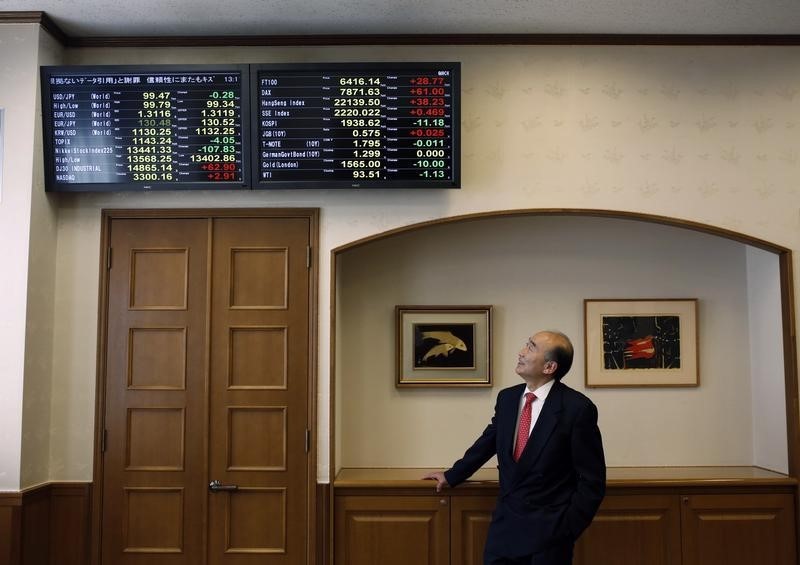By Leika Kihara
WASHINGTON (Reuters) - The Bank of Japan still has tools to further expand monetary stimulus but must bear in mind that there are limits to how far it can deepen negative interest rates, a senior International Monetary Fund official said on Tuesday.
Mitsuhiro Furusawa, the IMF's deputy managing director, said he did not see recent yen rises as deviating sharply from the fund's existing assessment that yen moves were "broadly in line with fundamentals."
When asked whether recent yen rises were sharp enough to justify unilateral yen-selling intervention by Japanese authorities, he told Reuters: "All I can say is that there's a consensus among nations that authorities can take necessary action against rapid and disorderly exchange-rate moves."
The BOJ stunned markets in January by deciding to add negative interest rates to its massive asset-buying programme in a fresh attempt to achieve its 2 percent inflation target.
But the move has failed to arrest an unwelcome yen rise that hurts already weak exports and a fragile economy, prompting government officials to warn of their readiness to step into the market to stem yen gains.
With the G20 major economies warning against competitive devaluations, however, many market players expect Japan to refrain from currency intervention for fear of being criticised as adopting a "beggar-thy-neighbour" policy.
Furusawa said the communique from the G20 finance leaders meeting in Shanghai in February will not constrain additional monetary stimulus. The BOJ still had tools it could use to reflate the economy, he noted.
But he warned that monetary policy alone could not solve all of Japan's economic problems, stressing that easy monetary conditions must be accompanied by fiscal stimulus and structural reforms to achieve sustained, balanced growth.
"Negative rates have positive effects on the economy," Furusawa said. "But the BOJ must be mindful that there are limits to how long such a policy can continue and how deep rates can go negative."
BOJ policymakers will likely debate the possibility of easing policy at a rate review this month, as a raft of gloomy data threatens their scenario that a moderate economic recovery will accelerate inflation toward their target, sources familiar with their thinking said.
The BOJ charges a 0.1 percent interest on a small portion of excess reserves that financial institutions park with the central bank.

Ballpark estimates by IMF staff showed central banks could cut interest rates between minus 75 basis points to minus 200 points, before they reach the tipping point at which depositors will shift to cash.